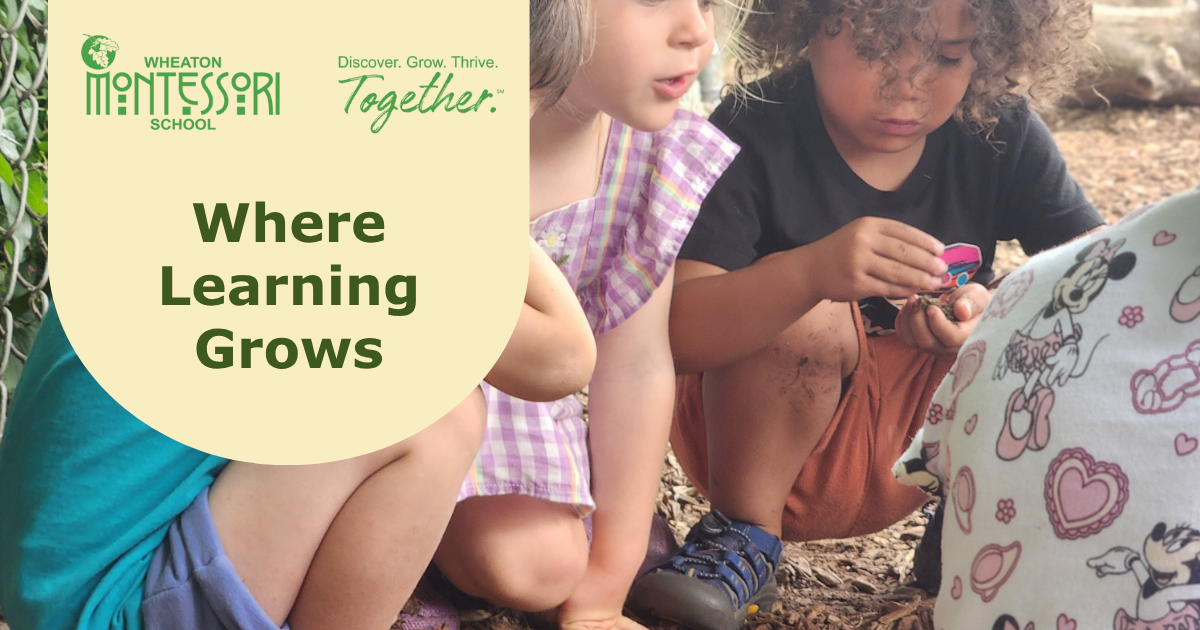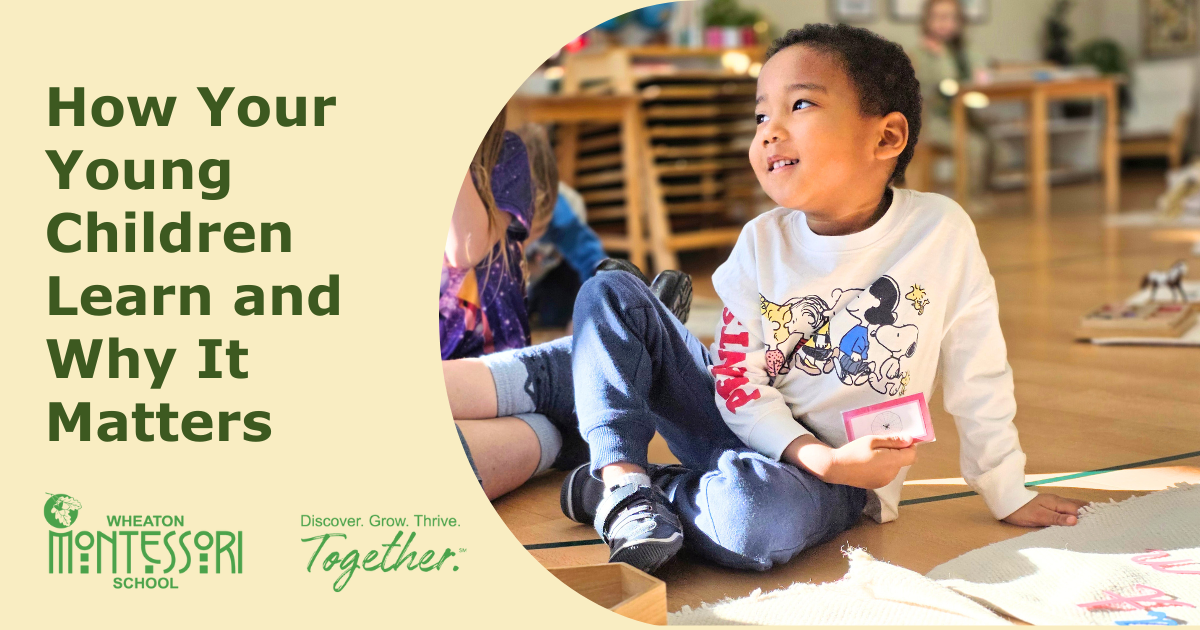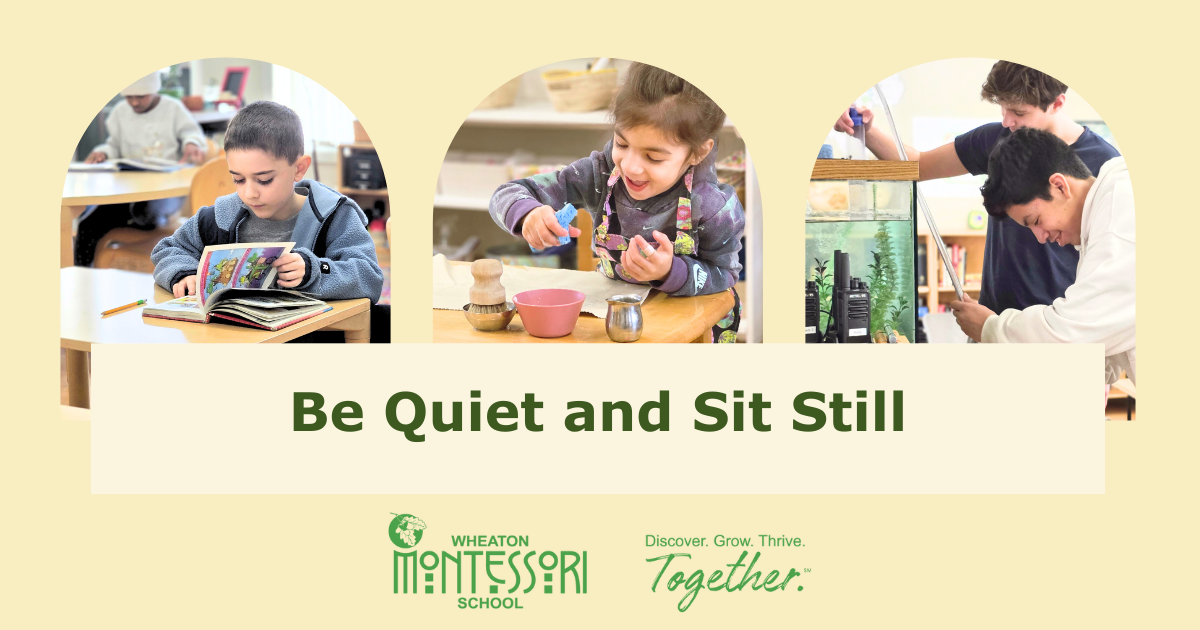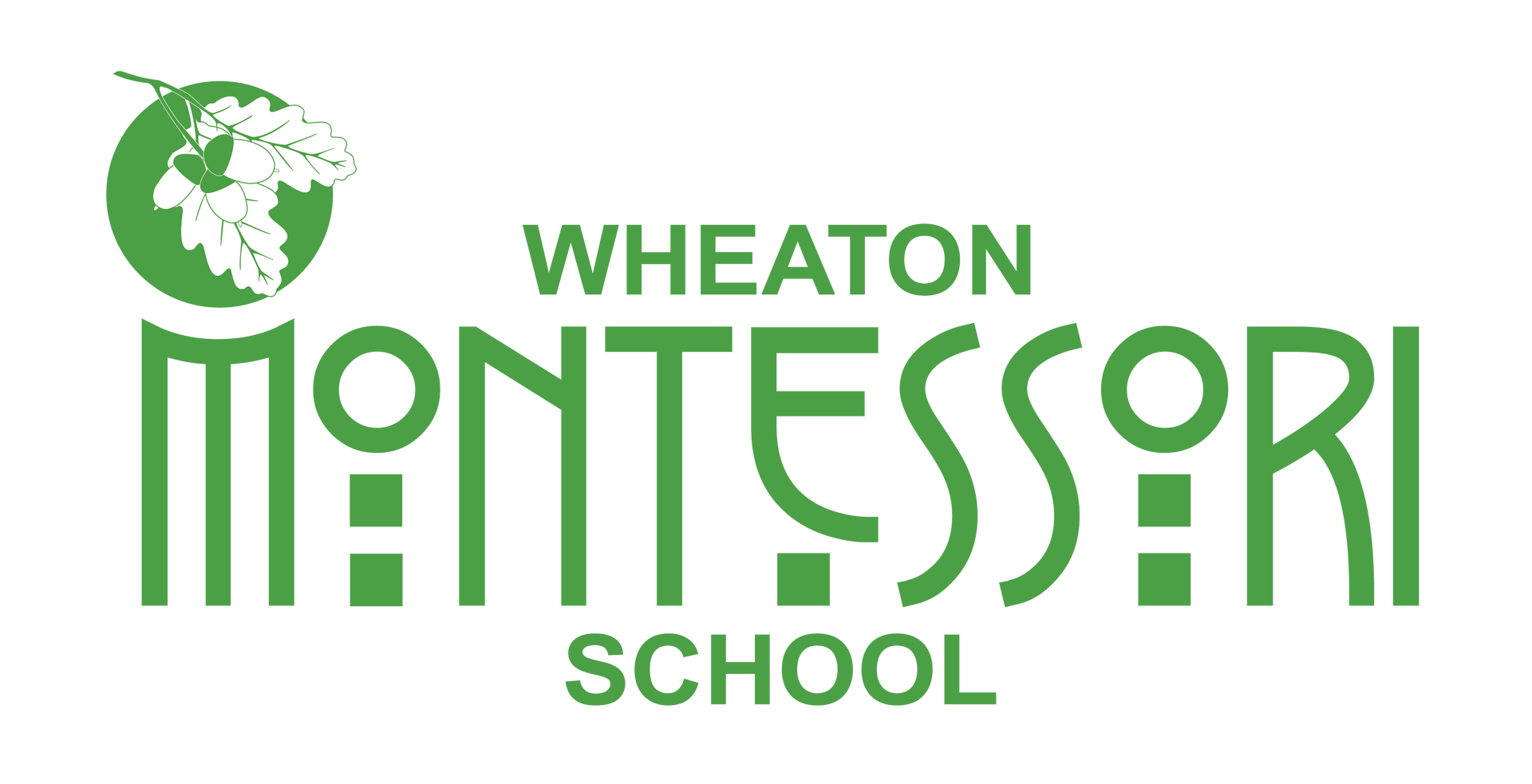
One of the many beautiful and empowering aspects of Montessori education is how it helps children understand themselves as valued members of a community. A key way this happens is through Care of the Environment, a form of Practical Life work that provides children with the opportunity to tend to the spaces they live in each day.
By participating in and building these skills, children begin to feel at home in their classroom, school, and community. They have a sense of ownership and take pride in their surroundings. In the process, they develop deep senses of responsibility and connection.
The Outdoor Environment
We consider the outdoors to be a natural and essential extension of our prepared, indoor classroom spaces. For young children who are absorbing everything from the world around them, time spent outdoors supports development in profound and lasting ways. For older children and adolescents, outdoor spaces can be a place for self-regulation and deep focus. We value being the outdoor extensions of our classrooms.
Did you know we have an additional 1-acre natural area on the west side of our campus? It’s true and we are excited to share more about this space in over the course of the school’s 25th year.
Did you know that our students have daily outdoor recess as toddlers and all the way through the end of 9th grade? 7-9th grades often go to nearby parks for their recess time.
Did you know that older elementary and all adolescent students take annual camping trips? Adolescents are encouraged to plan and execute a second camping experience, also!
Why Being Outdoors Matters
We know natural spaces are vital for promoting the physical, emotional, and cognitive health of everyone, regardless of age. Research supports this, including Richard Louv’s book, The Last Child in the Woods. Louv highlights a growing body of evidence that time spent in nature is critical to the healthy development of both children and adults.
In Montessori, we recognize that outdoor time is not a break from learning. Rather, the natural world is a powerful space for movement, language, social development, and sensory integration. Time spent outdoors is learning time.
Nature nourishes the whole child. Plus, the natural world’s beauty, order, and rhythm speak to our deepest human tendencies to explore, understand, and belong.
Opportunities for Adults
Outdoor spaces become a rich environment for observation, guidance, and connection. Children are often more socially expressive outdoors, making this a critical place for observing group dynamics and supporting social-emotional growth.
Time spent outdoors also models joyful, playful behavior. Children need to see that being human includes lightness and laughter. Being outside with children offers perfect opportunities for us to play alongside them while still maintaining an appropriate level of guidance.
As children gain different experiences, they come to understand how to conduct themselves with grace and courtesy, whether on a woodland trail, at a community park, or in a garden bed. Activities like fort building or group games help them navigate the intricacies of collaborative work and group dynamics, which sharpen social skills. Montessori children learn to move through different scenes and scenarios with increasing awareness, sensitivity, and confidence.
Getting Outdoors
Wheaton Montessori School values time outdoors; we incorporate movement and outside into every school day. We believe this time outside is an extension of classroom work and academics. Students in grades 4-9 often have P.E. outdoors, all grades have daily recess, and our all-day PLUS wrap-around students have extended play after school, which seeks to offer activities similar to neighborhood play of the past
This fall, when you come to observe your child’s class, take a peek at the outdoor spaces: open play spaces, Gaga ball pit, sandboxes, chicken coop, gardens, conservation area, rain garden, and beehives. Our playgrounds are ready for your children’s imaginations to soar next week!


